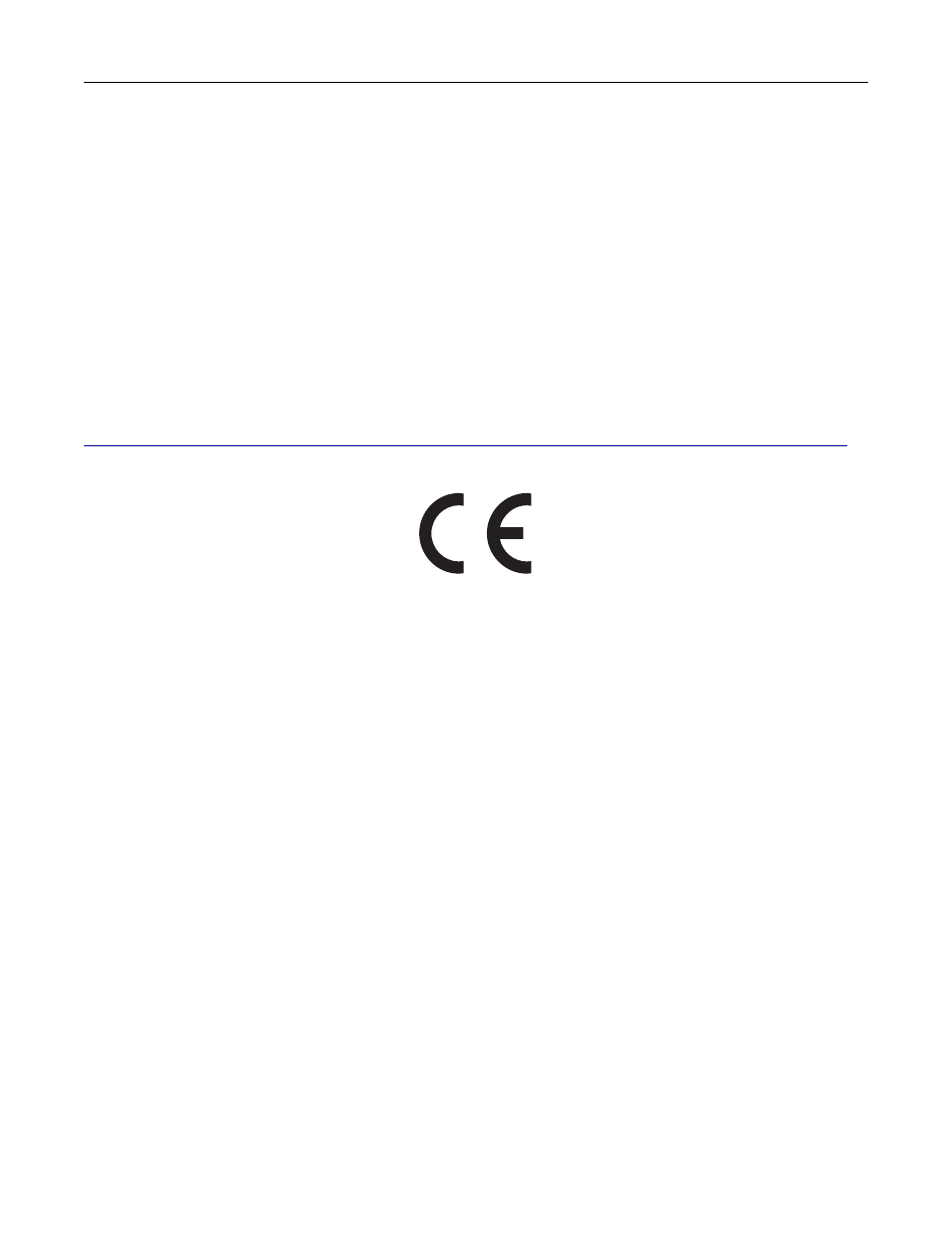European community (ec) directives conformity, Multiple model information – Lexmark CX622ade Color Laser Printer User Manual
Page 258

Industrie Canada (Canada)
Cet appareil est conforme aux normes RSS exemptes de licence d'Industrie Canada. Son fonctionnement est
soumis aux deux conditions suivantes : (1) cet appareil ne doit pas causer d'interférences et (2) il doit accepter
toutes les interférences, y compris les celles qui peuvent entraîner un fonctionnement indésirable.
European Community (EC) directives conformity
This product is in conformity with the protection requirements of EC Council directive 2014/53/EU on the
approximation and harmonization of the laws of the Member States relating to radio equipment.
The manufacturer of this product is: Lexmark International, Inc., 740 West New Circle Road, Lexington, KY,
40550 USA. The authorized representative is: Lexmark International Technology Hungária Kft., 8 Lechner Ödön
fasor, Millennium Tower III, 1095 Budapest HUNGARY. A declaration of conformity to the requirements of the
Directives is available upon request from the Authorized Representative or may be obtained at
Compliance is indicated by the CE marking:
EU statement of radio transmitter operational frequency bands and maximum RF power
This radio product transmits in the 2.4GHz (2.412–2.472GHz) band in the EU. The maximum transmitter EIRP
power output, including antenna gain, is ≤ 20dBm.
Multiple model information
The following information applies to all CX421 (7529-230), CX522 (7529-436), MC2325 (7529-081), MC2425
(7529-238), MC2535 (7529-486), and XC2235 (7529-496) printer models.
Federal Communications Commission (FCC) compliance information
statement
This product has been tested and found to comply with the limits for a Class B digital device, pursuant to Part
15 of the FCC Rules. Operation is subject to the following two conditions: (1) this device may not cause harmful
interference, and (2) this device must accept any interference received, including interference that may cause
undesired operation.
The FCC Class B limits are designed to provide reasonable protection against harmful interference when the
equipment is operated in a residential installation. This equipment generates, uses, and can radiate radio
frequency energy and, if not installed and used in accordance with the instructions, may cause harmful
interference to radio communications. However, there is no guarantee that interference will not occur in a
particular installation. If this equipment does cause harmful interference to radio or television reception, which
can be determined by turning the equipment off and on, the user is encouraged to try to correct the interference
by one or more of the following measures:
•
Reorient or relocate the receiving antenna.
Notices
258